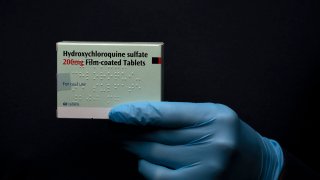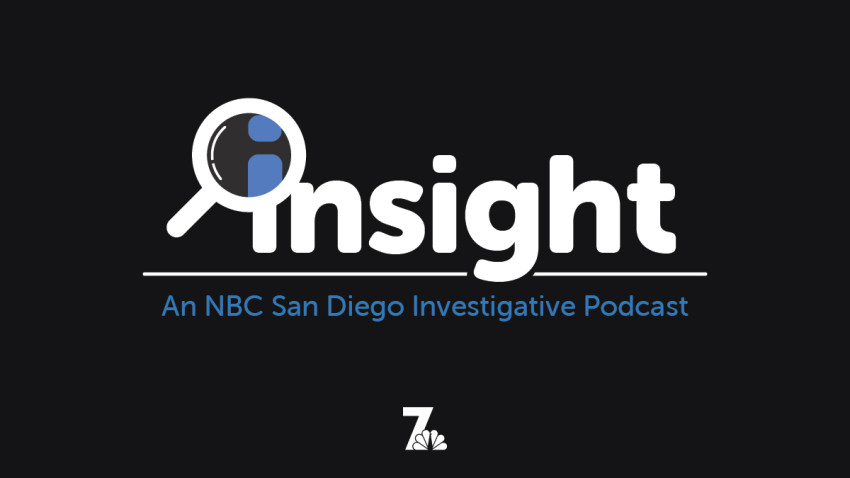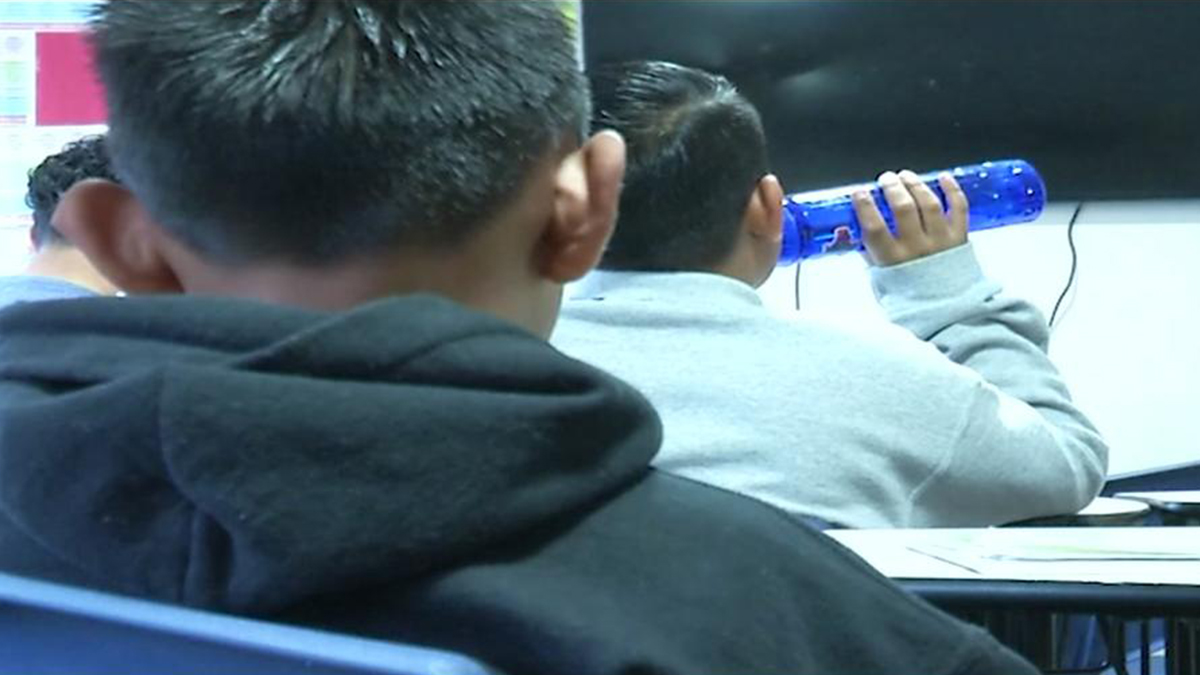
This article has been updated.
The drug President Donald Trump calls a "game-changer" in treating the coronavirus, is now mired in confusion and controversy. But as NBC 7 Investigates found out, some local health providers are using it anyway.
Three of the big four health networks in San Diego are using hydroxychloroquine to treat COVID-19 patients. One health network isn’t – UC San Diego Health.
“Without really solid information about whether or not it works,” says the health system’s chief pharmacy officer, Dr. Charles Daniels. “It’s hard for us to endorse.”
“I have a high level of confidence to not use hydroxychloroquine on patients based on the strong and unanimous recommendations of the expert task force of our faculty,” says Daniels.
He says the health network doesn't use any drug in a way that isn't scientifically proven to be safe and effective.
“We feel pretty comfortable with that position,” says Daniels.
He says not only is the drug unproven, but it can also be toxic to the heart.
In fact, Daniels says he wouldn't let his own family take the drug - even if they were critically sick from COVID-19. Rather, he'd recommend they try one of the other drugs currently in clinical trials.
But not every local hospital shares that position - in fact, all three of the other big networks, Kaiser, Sharp, and Scripps are using the drug to treat some COVID-19 patients.
As NBC 7 Investigates has reported, Kaiser is restricting refills for other patients to 14-days.
Hydroxychloroquine is a treatment for lupus, rheumatoid arthritis, and malaria.
At a San Diego County briefing this week, county health officials acknowledged why physicians may choose to use hydroxychloroquine on COVID-19 patients.
“When someone has got a very serious illness and is near death frankly,” said Dr. Eric McDonald at the county press conference Tuesday. “Physicians will try anything that might work.”
But the drug is far from foolproof for the coronavirus.
NBC News reports at least a handful of critical care physicians across the country have said they've seen no evidence the drug is helping their sickest patients in intensive care.
Daniels worries if hospitals keep spot treating patients with the drug, results will never be clear.
“We won’t know at the end of the pandemic whether or not it really was useful or not,” says Daniels.
More Stories On Coronavirus in San Diego:
While UC San Diego Health is not using hydroxychloroquine to treat COVID-19 patients, it says it is taking steps to be able to participate in a clinical trial.
The FDA issued an Emergency Use Authorization, which allows pharmaceutical companies to make more of the drug, but the FDA has not approved it as safe or effective to treat COVID-19.
Below are copies of the full statements NBC 7 Investigates received from UC San Diego Health, Sharp, Scripps, and Kaiser:
UC San Diego Health
As soon as rumors began to circulate about hydroxychloroquine’s unproven potential to treat patients with COVID-19, UC San Diego health pharmacies sequestered their available medication supply and implemented a plan to conserve supplies to be dispensed only for existing patients with lupus, rheumatoid arthritis, and other approved indications. Hydroxychloroquine is FDA-approved for the treatment of only those few conditions. Insufficient information regarding hydroxychloroquine efficacy in COVID-19 infection is available to recommend its use in the absence of clinical trial data. UC San Diego Health does not support the use of medications in ways for which there is not yet scientific evidence to support safety and efficacy.
Since UC San Diego health leaders sought out expert opinion from their faculty early in the emergency and moved quickly to implement this plan before hydroxychloroquine supplies were exhausted, we are confident our patients who rely on hydroxychloroquine will be able to continue refilling their prescriptions without issue.
At the same time, UC San Diego health experts are interested in assessing hydroxychloroquine’s potential to treat COVID-19 in a safe, scientific manner. To do that, our researchers are completing the necessary steps to participate in existing clinical trials and launch our own investigations of the medication.
Sharp Healthcare
Sharp healthcare is restricting the use of hydroxychloroquine for COVID-19. Usage is decided on a case-by-case basis for positive COVID-19 patients to allow preservation of the medication for FDA-approved indications such as lupus. Our guidance will be continuously updated based on newly available evidence and published literature.
Scripps Health
Supplies of hydroxychloroquine are limited, so we have reserved it for use within our hospitals for our sickest patients with suspected or confirmed COVID-19.
There have been some small studies that suggest this medication might be helpful in treating COVID-19. However, there is no clear evidence at this point. There are currently appropriately designed studies underway to determine the efficacy of this treatment. Because of this potential benefit, Scripps, like many other health care systems, has developed treatment guidelines for the use of hydroxychloroquine in critically ill COVID-19 patients. The reasoning is, if this drug helps those patients hospitalized for the treatment of COVID-19 in any way, it can be another tool for our provider in their efforts to control this disease.
The potential benefits of hydroxychloroquine to hospitalized COVID-19 patients has led Scripps to restrict the dispensing of hydroxychloroquine for new start treatments (new patients) in the outpatient setting outside our hospitals for patients with other conditions and diseases. However, treatments are continuing to existing patients with previous prescriptions that are being serviced in our system. Knowing that often this medication is given to patients when other therapies have failed, we have chosen to manage their needs a part of our supply restrictions. We understand that there could be a greater need for this medication with the anticipated impact of COVID-19 and are closely monitoring supply and utilization. We are working closely with our physicians and hospital leaders to assure we are able to adjust our approach based on the changing needs of our patients.
No, we haven’t restricted use for these patients who have an existing prescription for the medication.
Kaiser Permanente
Given the global shortage, Kaiser Permanente has taken action to ensure our patients have an adequate supply. Our patients who have been prescribed these medications for non-COVID-19 treatments (such as for sle/lupus, rheumatoid arthritis, malaria) are talking with their physicians to ensure the appropriate continued use of these medications or considering alternatives when clinically appropriate. Our actions have been successful so far, and we have enough medication in the very near term to meet our patients’ need for these drugs for their current medical conditions:
- We continue filling current prescriptions for patients with sle/lupus, rheumatoid arthritis, and malaria. Until supplies can be increased to match the significantly increased demand, we are generally providing 14-day refills instead of 90-day refills. Kaiser Permanente began communicating these changes to its patients taking hydroxychloroquine on April 3rd.
- Physicians are working with their patients to review their medications to ensure they are able to manage their care under this approach. (the collection of co-pays will be adjusted appropriately to fairly reflect this change in dispensing during this time.)
We also have a supply available for severely sick patients hospitalized with COVID-19 infections.
We and other health care organizations across the country are working with manufacturers and other sources of these drugs to obtain increased supplies to meet the expected needs to come. If we don’t take steps to mitigate the shortage, we all will face the real possibility of running out of these critical drugs.
CORRECTION: An earlier version of this article stated that San Diego County health officials announced at a news briefing that a person had died from COVID-19 complications after doctors had treated them with hydroxychloroquine. A spokesperson for the county clarified that officials "have no knowledge of any facts" pertaining to that case and were only responding to a reporter’s questions at the briefing.



